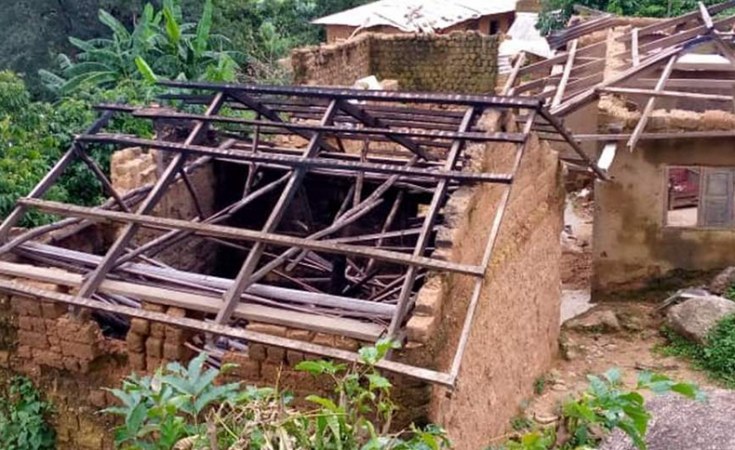Yaoundé — "We will not pay a dime" to the kidnappers of the nine worshippers taken from St. Mary's Catholic Church, in the village of Nchang (see Fides, 19/6/2022) in the Anglophone area of Cameroon. This was reported by the President of the Episcopal Conference of Cameroon, Msgr. Andrew Nkea Fuanya, Archbishop of Bamenda, stating that paying the ransom requested by the kidnappers (see Fides, 20/9/2022) "would create a dangerous precedent".
Msgr. Nkea reported that the kidnappers, who belong to the Anglophone separatist fighters, initially began by demanding a ransom of US$100,000, then started bringing it down and have now ended up asking for US$50,000.
The Archbishop also told reporters that the separatists said they attacked St. Mary's Catholic Church in Nchang near Mamfe and burned it down because they were angry the Catholic Church does not support their struggle.
The kidnapped priests are Fr. Emmanuel, Fr. Barnabas, Fr. Cornelius, Fr. Elias and Fr. Job-Francis. In addition to the 5 priests, Sister Jacinta and 3 lay faithful were kidnapped: Mrs. Kelechukwu, Mr. Nkem Patrick and a young woman, Blanch Bright.
Msgr. Aloysius Fondong Abangalo, bishop of Mamfe, who visited the burnt down structure shortly after the incident accused boys from the Nchang village of having joined separatist fighters, popularly known locally as "Amba Boys".
The spokesman of the Cameroon Episcopal Conference, Fr. Humphrey Tatah Mbuy stressed that "there have been kidnappings of religious in the past, but these were isolated cases. A similar attack appears planned, with the church burned down and nine kidnapped. This is an unprecedented case."
The Anglophone population is the majority in the northwest and southwest of Cameroon, a predominantly Francophone country. Feeling discriminated against by institutions, especially in schools and courts, resentment towards the Cameroonian state has grown over the years in the population of these areas. The protests, initially peaceful, turned into an armed struggle and, in 2017, into the declaration of an independent State, the "Federal Republic of Ambazonia" (see Fides, 2/10/2017), which is not recognized by the international community.


